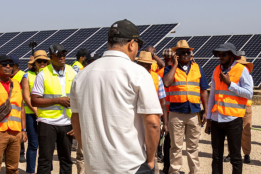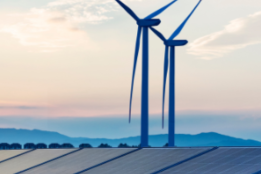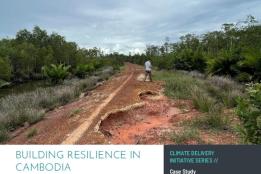Just a decade ago, the Maldives relied almost entirely on imported diesel to meet its energy needs, spending more than 13.5% of GDP on fuel imports. Electricity costs were among the highest in the world, reaching $0.40 per kWh in outer islands. A transformation began when the Government of Maldives, set out to turn a costly, import fuel-dependent energy system into a more modern, sustainable, and tariff-competitive sector that encourages innovative clean energy solutions and private sector participation.
Under CIF’s Scaling Up Renewable Energy Program in Low-Income Countries (SREP), the country’s investment plan targeted more than infrastructure. CIF’s catalytic finance, in partnership with the Asian Development Bank’s POISED project and the World Bank’s ASPIRE project, created a replicable framework for private sector participation and energy market liberalization in the renewable energy sector. This included tariff reductions, lowered risk, and more standardized contracts, all making clean energy bankable in an untested market.
The results were clear. Investor interest accelerated as confidence in the Maldivian market improved. Over the course of the private-sector focused ASPIRE project in Malé, the enhanced bankability and structuring arrangements saw the number of bids per tender increase exponentially (4 bids for the Phase I’s 1.5MW tender; 25 bids for Phase II’s 5MW tender; and 63 expressions of interest for Phase III’s 11MW tender). This increased investor appetite in turn resulted in the Government’s ability to secure far more competitive prices, with tariffs dropping from $0.21 in Phase I to just $0.0988 per kWh in Phase III, a 53% reduction that reshaped the market.
To date, over 17.5 MW of private-sector-led solar projects are operational or under development, including on the southern-most Addu atoll. The program catalyzed over $25 million in private investment and helped unlock follow-on support. Each investment is built on ASPIRE’s foundation to enable bigger systems, floating solar, and battery storage.
This was especially important for a nation of 1,192 islands and a globally significant tourism sector. “Unlocking the private sector has been key in this growth,” said Akram Waheed, Senior Energy Specialist at the Ministry of Climate Change, Environment and Energy. “Close to half of installed capacity now comes from private investment, including systems developed on resort islands.”
For other small island developing states, the Maldives offers a model of how finance can develop an entire clean energy market. "The project brings energy storage to the islands, so the new renewable energy installed by the private sector is not wasted," said Sergio Ugarte at the Ministry of Climate Change, Environment and Energy. "This allows the share of renewables to keep growing and helps secure private investment through dedicated financial instruments. That’s how we built confidence in the market."




